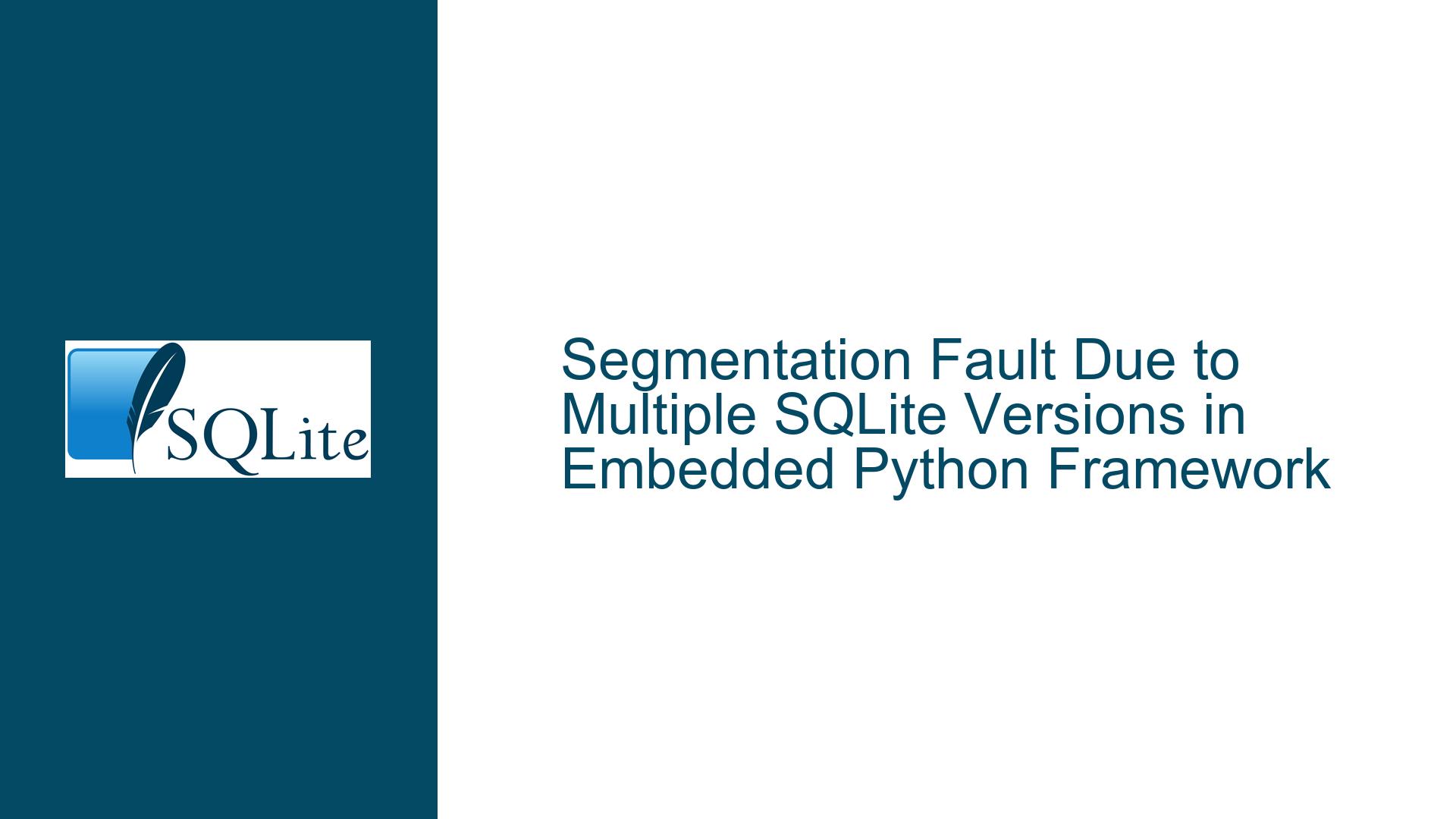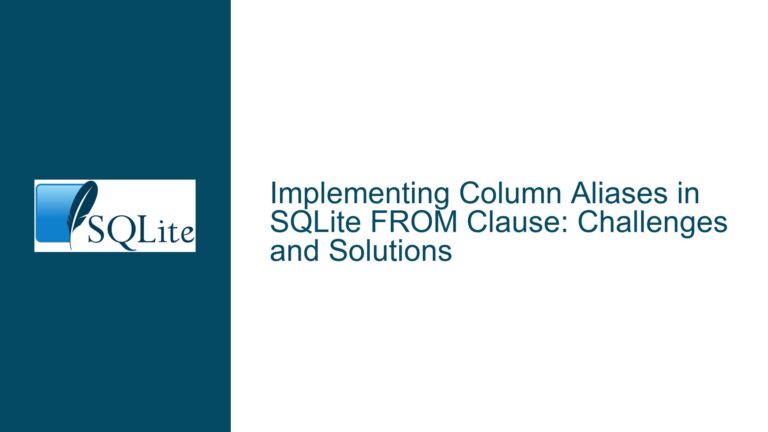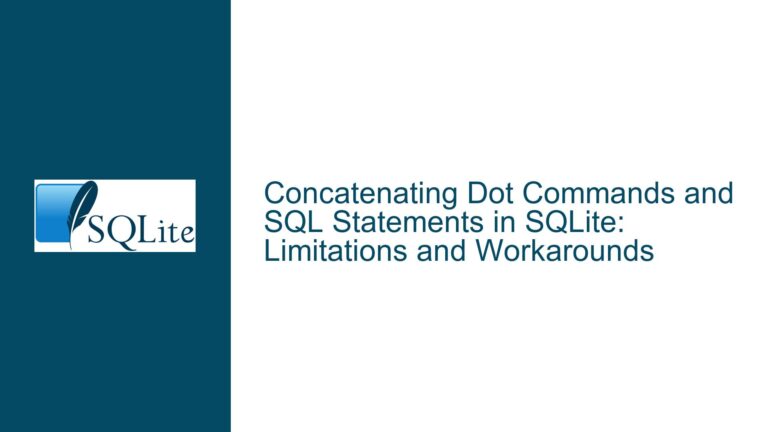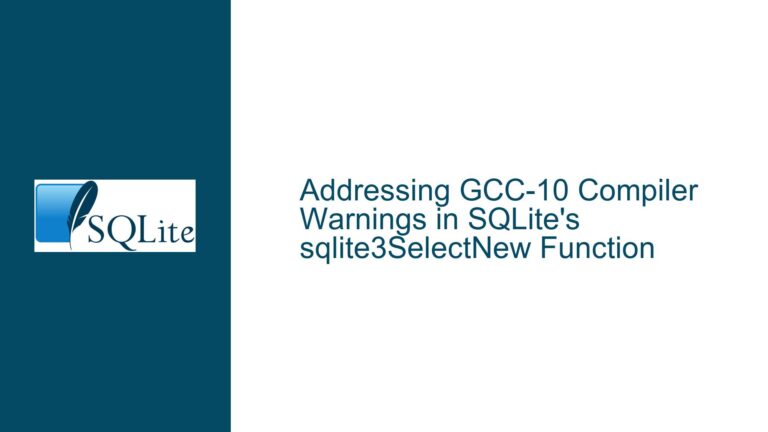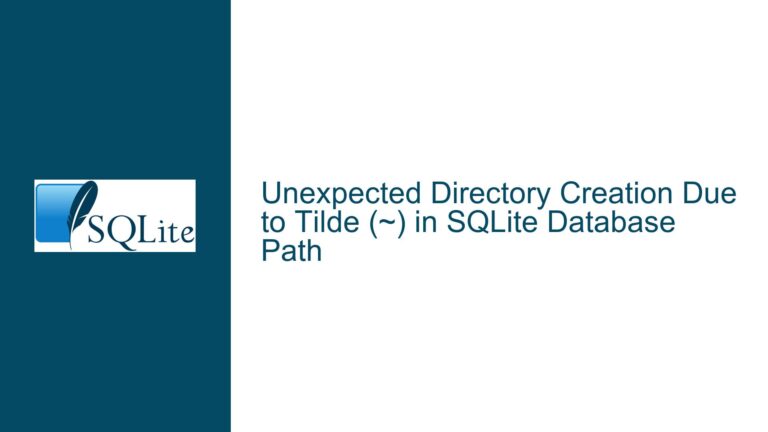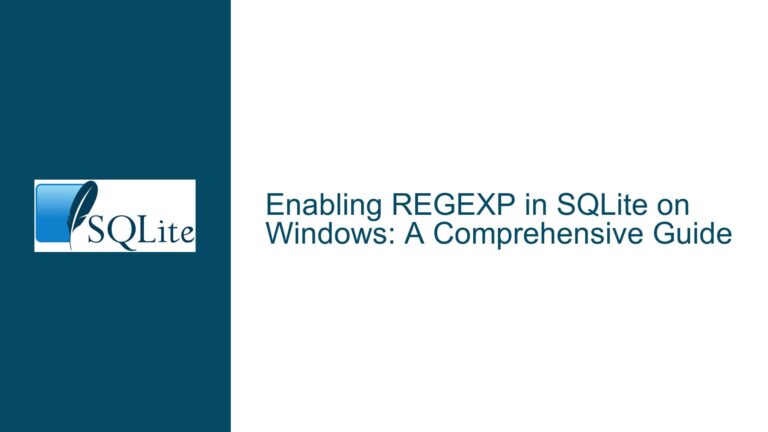Segmentation Fault Due to Multiple SQLite Versions in Embedded Python Framework
Segmentation Fault in Embedded Python Framework with SQLite
When working with an embedded Python framework within a C application like Domoticz, a segmentation fault can occur due to the interaction between multiple versions of SQLite libraries. This issue typically arises when the C application (Domoticz) uses one version of SQLite (e.g., SQLite-Amalgamation) while the Python plugin uses another version (e.g., via pysqlite or libsqlite3.so). The segmentation fault is often triggered during specific SQLite operations, such as PRAGMA requests, which are not managed correctly due to the conflicting versions. The fault manifests in the call stack, where the CPlugin (Domoticz) calls into Python (libpython3.7), which then interacts with pysqlite and ultimately libsqlite3.so or sqlite3.c from the SQLite-Amalgamation. This mismatch in SQLite versions can lead to undefined behavior, memory corruption, and segmentation faults.
The core issue lies in the fact that SQLite is not designed to handle multiple instances of itself within the same application. When two different versions of SQLite are linked into the same application, they may use conflicting internal data structures, memory management routines, or API implementations. This can cause the application to crash when one version of SQLite attempts to interpret data or state managed by another version. The segmentation fault is a symptom of this deeper incompatibility, often occurring at the boundary between the C and Python layers where the two SQLite versions interact.
Multiple SQLite Versions Linked into the Same Application
The primary cause of the segmentation fault is the presence of multiple versions of SQLite within the same application. In this scenario, the C application (Domoticz) is compiled with one version of SQLite (e.g., SQLite-Amalgamation), while the Python plugin uses a different version of SQLite (e.g., via pysqlite or libsqlite3.so). These versions may differ in their internal implementations, memory management, or API behavior, leading to conflicts when they are used simultaneously.
SQLite is designed to be a self-contained, lightweight database engine, and it assumes that only one instance of itself is running within an application. When multiple versions are linked into the same application, they may overwrite each other’s memory, use incompatible data structures, or misinterpret each other’s state. This can lead to undefined behavior, including segmentation faults, memory corruption, or data loss. The issue is exacerbated when the application performs complex operations, such as PRAGMA requests, which may involve internal state changes or memory allocations that are not compatible between versions.
Another contributing factor is the way SQLite handles its internal state and memory management. SQLite uses a number of global variables and static data structures to manage its state, such as the database connection, prepared statements, and transaction state. When multiple versions of SQLite are linked into the same application, these global variables and data structures may conflict, leading to unpredictable behavior. For example, one version of SQLite may allocate memory for a database connection, while another version may attempt to free or modify that memory, leading to a segmentation fault.
Resolving SQLite Version Conflicts and Preventing Segmentation Faults
To resolve the segmentation fault caused by multiple SQLite versions, the application must ensure that only one version of SQLite is used throughout the entire stack. This can be achieved by either unifying the SQLite version used by the C application and the Python plugin or by isolating the SQLite instances so that they do not interact with each other.
The first approach involves ensuring that both the C application (Domoticz) and the Python plugin use the same version of SQLite. This can be done by compiling the C application and the Python plugin against the same SQLite library. For example, if the C application uses SQLite-Amalgamation, the Python plugin should also use the same version of SQLite-Amalgamation. This ensures that all SQLite operations are performed using the same internal data structures, memory management routines, and API implementations, preventing conflicts and segmentation faults.
The second approach involves isolating the SQLite instances so that they do not interact with each other. This can be achieved by using separate processes or threads for the C application and the Python plugin, each with its own instance of SQLite. For example, the C application could run in one process, while the Python plugin runs in a separate process, communicating with the C application via inter-process communication (IPC) mechanisms such as sockets or shared memory. This ensures that each SQLite instance operates independently, without interfering with the other.
In addition to these approaches, it is important to ensure that the SQLite library is correctly configured and initialized. For example, the application should use the PRAGMA journal_mode setting to configure the journaling mode of the SQLite database, which can affect its behavior and performance. The application should also ensure that the SQLite library is correctly linked and that there are no missing or conflicting symbols.
To prevent segmentation faults and other issues caused by multiple SQLite versions, the application should also implement robust error handling and logging. For example, the application should check the return values of SQLite API calls and handle errors appropriately. The application should also log detailed information about SQLite operations, including the SQL statements, parameters, and results, to help diagnose and resolve issues.
Finally, the application should be tested thoroughly to ensure that it behaves correctly under all conditions. This includes testing with different versions of SQLite, different configurations, and different workloads. The application should also be tested for memory leaks, performance issues, and other potential problems that could arise from using multiple SQLite versions.
By following these steps, the application can avoid segmentation faults and other issues caused by multiple SQLite versions, ensuring that it operates reliably and efficiently.
